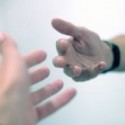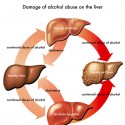Alcohol craving reduced by drugs
Twin research projects have offered both present and future hope to people suffering from alcohol addiction.
US researchers say that epilepsy drug topiramate boosts general health as well as cutting the craving for drink.
A UK specialist said the potential side-effects of topiramate still merited caution.
A separate project showed that a single injection of a protein into the brains of rats almost immediately stopped them wanting alcohol.
Topiramate treats the alcohol addiction, not just the ‘symptom’ of drinking
Bankole Johnson
University of Virginia
Topiramate is not licensed in the UK for the treatment of alcohol addiction, although doctors are allowed to prescribe it if they wish, and occasionally do.
The latest study results, published in the journal Archives of Internal Medicine, could increase the number of doctors willing to do this.
Researchers from the University of Virginia analysed the results of the US-wide trial, which took 371 people with a heavy drinking problem, and gave them either topiramate or a placebo “dummy” drug.
They found, that over 14 weeks, those taking topiramate not only had fewer obsessive thoughts and compulsions about using alcohol, but had generally improving health.
Their weight, cholesterol and blood pressure dropped, and levels of liver enzymes linked to “fatty liver” disease, the forerunner of cirrhosis, also fell away.
Lead researcher Professor Bankole Johnson said: “What we’ve found is that topiramate treats the alcohol addiction, not just the ‘symptom’ of drinking.”
Side effects
Dr Jonathan Chick, a specialist in the psychiatry of addiction, welcomed the results, particularly the figures which proved better health, rather than relying on an estimate of reduced drinking levels, which could prove misleading.
He said: “There are other drugs which were originally developed to prevent epileptic seizures, which have also shown promise in reducing relapse in alcoholism, but topiramate is so far the most convincing.”
However, he said that his own limited use of topiramate had been very carefully monitored to minimise the powerful side-effects of the drug.
In the other study, the Proceedings of the National Academy of Sciences Journal reported on a study in rats carried out at the University of California at San Francisco.
The scientists injected a brain protein called GDNF directly into a part of the brain called the ventral tegmental area, which is thought to be heavily involved in “drug-seeking” behaviour.
The rats were placed in an environment designed to mimic human social drinking, with a lever that could be pushed to deliver an alcoholic drink.
Rat rehab
The protein began working almost immediately, with effects noticed within 10 minutes.
The research also suggested that other cravings were unaffected, as the rats’ desire for their supply of sugary water continued unabated.
In addition, once treated with GDNF, rats seemed to be less likely to “relapse” to alcoholism after a “rehab” situation, in which the alcohol supply was cut off for a period of time, then reintroduced.
“Our findings open the door to a promising new strategy to combat alcohol abuse, addiction and especially relapse,” said lead author Dr Dorit Ron.
Dr Chick said that there had been various attempts to interfere directly with the brain systems controlling alcohol cravings, although these had only achieved “mixed success” when transferred from experimental animals to humans.
______________
source: BBC NEWS


